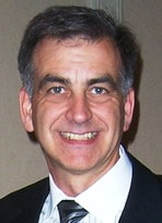|
NaRCAD & Training Facilitator Loren Regier, BSP, BA  Tags: Detailing Visits, International Our team's training facilitator Loren Regier recently shared these pearls of wisdom about talking (and listening more) to front-line clinicians. In 1:1 academic detailing visits, detailers have the challenge of finding the right balance between sharing information and acquiring insight into a clinician's practice. It's the kind of balance an expert detailer can execute well, but how? Loren's tips on talking more when necessary to draw out the clinician's needs by asking good questions, and toggling to actively listening and talking less to understand clinicians' biases, are below. Talk More: -If someone is at the point of having “bought in” to a concept/idea, they may just need information. In this situation, it's okay to talk a little more, especially if you sense the “thirst for relevant information.” Talk Less: -If, however, a person has not yet bought in to an idea, it is often more important to talk less, or move towards equalizing the talking. -They will reject too much information that they don’t believe. But in discussing, there is the chance to explore ambivalence, raise doubts, and compare notes. -In all cases, learn to listen and listen well. -I What quick tips would you share with other detailers on assessing needs? Sound off in the comments section below! Biography. Loren Regier, BA, BSP
Clinical Director, Academic Detailing Service, Centre for Effective Practice, Program Coordinator, RxFiles Academic Detailing, U of S, College of Pharmacy/Nutrition, Facilitator, Educational Outreach/Academic Detailing Training | Loren is the Program Coordinator of the RxFiles Academic Detailing Service in Saskatoon, SK, Canada. Loren has guided the development of this provincial academic detailing service since the first pilot project began in 1997. Loren is active as a member of the Canadian Academic Detailing Collaboration and provides training and consultation to various programs and initiatives. Read more. Comments are closed.
|
Highlighting Best PracticesWe highlight what's working in clinical education through interviews, features, event recaps, and guest blogs, offering clinical educators the chance to share successes and lessons learned from around the country & beyond. Search Archives
|
